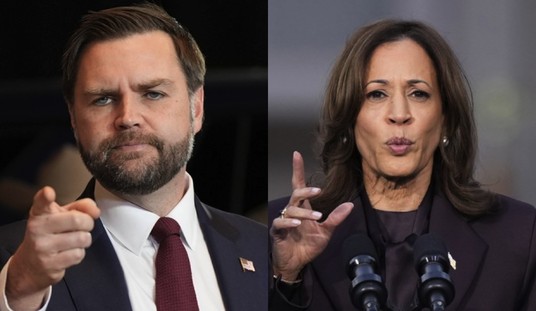
Coming from the Democrat-media complex, the coverage of Governor Matt Bevin’s apparent reelection loss is exactly what you’d expect — much of it lacking real analysis and extremely biased against Trump, Trump supporters, and the Republican governor — i.e., fake news. Of course, many NeverTrumpers agree with the complex’s reporting: that Trump wasn’t able to save a Republican in a “deep red” state and that the election was a referendum on Trump and Trumpism, the loss a foreboding omen for Trump and Republicans going into 2020.
That those conclusions are baseless is as unsurprising as the NeverTrumpers’ agreement with them. But it’s more than disconcerting that some other Trump-friendly Republican elites are going along with the rest of the script: the reasons underlying Bevin’s status as “unpopular” and recommendations going forward.
First of all, even though Kentucky’s representation at the national level has become solidly Republican and its voters did choose Trump in 2016, at the state level, Kentucky is not “ruby red.” In 2015, Bevin was only the second Republican governor elected in 50 years. It wasn’t until 2000 that Republicans gained an edge over Kentucky’s Senate, a status not held since the 1940s; and in 2016, for the first time since the 1920s, the GOP flipped the Kentucky House.
As of October of this year, Kentucky had 1.686 million registered Democrats and 1.462 million registered Republicans. A whopping 85% of that spread is driven by only two counties: the urban areas of Louisville and Lexington, both university cities and well-known for being very liberal.
In 2015, following two successive terms of Democratic Governor Steve Beshear (the father of Bevin’s reelection opponent), Bevin soundly beat Democrat Jack Conway with 511,374 to Conway’s 426,620 votes. In 2019, election night results show Bevin at 704,760 to Andy Beshear’s 709,846. That means that not only did statewide turnout for both parties dramatically exceed the prior election, but that the supposedly “unpopular among Republicans” Bevin received almost 200,000 more votes for his reelection, a 40% increase.
The substantial rise in Democrat voter turnout was doubtless due to Beshear’s and local media’s relentless attacks on Bevin, focusing primarily on his work to reform the severely underfunded teachers’ union pension and negatively portraying it as an uncalled-for offensive against teachers. However when Bevin took office, he had no choice but to deal with the funding problem (he actually campaigned on it as a winning issue) because the significantly growing level of underfunding threatened to lower the state’s rating. Andy Beshear had been very narrowly elected Kentucky’s Attorney General in 2015, the same year Bevin became governor and Beshear’s father ended his final term.
The younger Beshear spent much of his time as AG challenging Bevin’s authority in multiple lawsuits, five of which were ultimately decided by the Kentucky Supreme Court, earning him the nickname from a Louisville radio personality of “Andy Besue.” It’s also worth noting that the frightening “Walking Dead” status of the teachers’ pension program was brought to the state’s attention by a whistleblower in 2014.
So essentially, to thwart Bevin from successfully dealing with a huge problem that his father, as governor, had kicked down the road, son Andy used his position as AG to work to protect his father’s legacy, destroy Bevin’s reputation, and to set up and enhance his own run at the governorship by demonizing Bevin before his reelection. The local media assisted Beshear with frequent headlines screaming about Bevin’s “threat” of cutting back teachers’ pensions. And everybody knows and loves teachers, right? So although Bevin worked to save the second-worst underfunded pension in the country, the media worked to label him the country’s second-most “unpopular” governor.
Journalist John J. Miller, writing for National Review, interviewed Bevin this past June, also concluding that “Bevin’s determination to address Kentucky’s pension crisis” may have been the root of his “unpopularity” problem. But Bevin responded: “Financial issues are tough…The easiest path is to do nothing.”
Miller further noted: “The irony of this hostility is that the unions are attacking a governor who seeks to make teacher pensions solvent, and they’re backing Democrats who don’t appear to share this concern.”
But instead of noting the difficulty of what Bevin faced and rallying behind him, Republican elites apparently found it easier to blame the loss on Trump and/or Bevin. The disconnect between NeverTrumpers’ touting of “conservative principles” while throwing a real principled conservative (with a record and credentials to prove it) like Bevin under the bus because he supported Trump is shameful, but expected.
For example, David French retweeted Tim Carney’s Washington Examiner piece about Bevin’s loss as “insightful.” Carney wrote that “Gov. Matt Bevin’s loss should send a message to embattled Republicans in Trump Country: President Trump is not going to save you if you’re drowning” and that Bevin was a “remarkably unpopular governor” who “furiously tried to ride Trump’s popularity.” The piece never mentioned the local battles Bevin faced such as the teachers’ pensions, nor Bevin’s stellar conservative record and personal history that one would think would make character-and-principles focused NeverTrumpers like French proud.
But for a Trump-friendly conservative like Laura Ingraham to also throw Bevin under the bus is remarkably disconcerting.
In her segment, Ingraham began the story on Bevin’s reelection loss by rightly correcting (as did The Federalist’s Sean Davis) the narrative pushed by the rest of the media — that Bevin was lagging more in state polling before Trump’s election eve rally than after. But then she took the route of criticizing Bevin:
The loss is on Bevin…He was the second-most unpopular governor in the United States…He picked a fight with the teachers’ unions that are very popular in the state, they’re very popular to the people of Kentucky…The real lesson here is: Know your state. Don’t come in like a bull in a China shop to turn it into something the people don’t want…and here’s an idea: as a candidate be likeable…when attractive candidates embrace Trump’s populist peace and prosperity agenda they will usually have a better shot at victory, but you have to know the state.
Wow. Besides failing to note the critical part about the “popular teachers” severely underfunded pensions, her advice to future Republican candidates is essentially: “Don’t pursue fiscally conservative policies to save your state or you’ll be unpopular and unlikeable!”
My advice: be prepared to have GOP elites leave you out in the cold when the going gets tough. Utter one clumsy sentence and even with a perfect team-playing conservative record, you’re marked as the weakest link and told you’re out. That’s a trait — party disloyalty — that Democrats definitely do not suffer from. They, along with their cohorts in the media complex, fiercely protect their own no matter what.
But these Republicans are fickle — especially the NeverTrumps. They seem to think that anyone who doesn’t at all times fit their expert yet ever-evolving criteria of principled conservatism — and of course for the NeverTrumps that means holding the principle of not supporting Trump above all others — doesn’t deserve their backing as conservative team players.
Their idea of the Perfect Conservative is the one that stares back at them in the mirror: one, apparently, who cares about getting along with the Democrat-media complex in-crowd as much as they do. Working to achieve touchy yet specific conservative issues might draw the fire of the complex and would risk lost panel invitations, plum writing assignments, and favorable attention. In other words, NeverTrumpers are not really very conservative — in the sense that the description encompasses the actual labor involved to apply their principles. Neither is much of the Republican elite — especially if this labor involves not simply talking about fiscal responsibility and spending cuts but in fact actually cutting spending, which always provokes nasty media headlines about “unpopular” Republicans lacking compassion.
Yes, the Bevin reelection loss was a sort of bellwether for 2020 — although not about the popularity of Trump, but rather as a warning for the GOP. The party must inspire and display loyalty, a unity of principles, and a willingness to fight alongside each other and with Trump on specific conservative issues — and most importantly, deliver messaging that counters the Democrat-media narrative and convincingly explains how their solutions will ultimately benefit the country and its citizens.
As of this writing, Governor Bevin has formally filed, “based on reports of irregularities,” for a recanvass of the election results. Although I do agree with Bevin that there are several oddities that need to be addressed, I am not hopeful that the recanvass, administered by outgoing Democrat Secretary of State Alison Lundergan Grimes, will change the result.
However I must remain hopeful that Republicans learned something from the hard work and leadership of Governor Matt Bevin and the dedication and support of his wonderful family. Many, many Kentuckians benefited from the Bevin family’s service and appreciated them all. Godspeed. And God bless the Bevins.
Cindy Simpson is a citizen journalist living in Louisville, Kentucky. Follow Cindy on Twitter @simpsonreport.













Join the conversation as a VIP Member